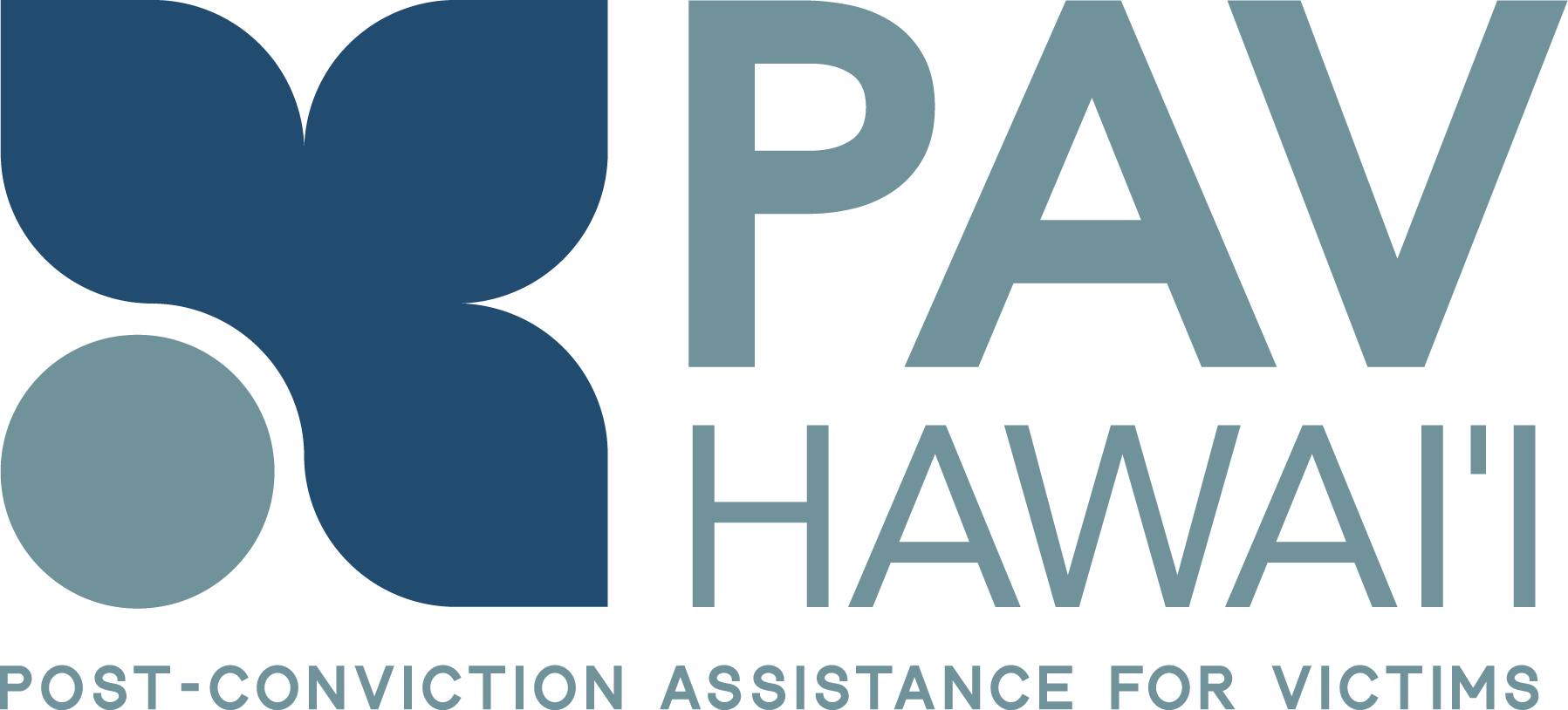


Post-Conviction Advocacy Program (PCVAP)
The Post-Conviction Victim Advocacy Program (PCVAP) in a unique collaboration between the Department of Public Safety's Crime Victim Compensation Commission (CVCC) and the Hawai'i Paroling Authority (HPA). The program's goal is to engage, empower, and instill confidence in victims to assert their rights in the post-conviction parole process. This program provides direct services to victims of crime specifically during the paroling process.
The role of the Post-Conviction Victim Advocate is to:
-
Provide support to victims as the offender is released back to the community on parole
-
Increase awareness of Post-Conviction Victim Rights and how to assert their rights
-
Provide direct services to victims on safety & security, ventilation & validation, prediction & preparation, and education & information
-
Provide referral and follow-up services as needed.
-
SERVICES
-
Education on victim rights
-
Safety planning
-
Assist in automated notifications through SAVIN
-
Aid in the collection of restitution
-
Make referrals to community programs and resources
-
Answer questions about the criminal justice process
VICTIM RIGHTS
Victims of crime may choose to participate in the post-conviction process and may be heard at different points by the parole board before they render a decision about a parolee through victim impact statements. These points include:
-
Minimum Term Hearings
-
Parole Consideration Hearings
-
Request for Reduction of Minimum Terms of Imprisonment
-
Early Discharge Consideration
